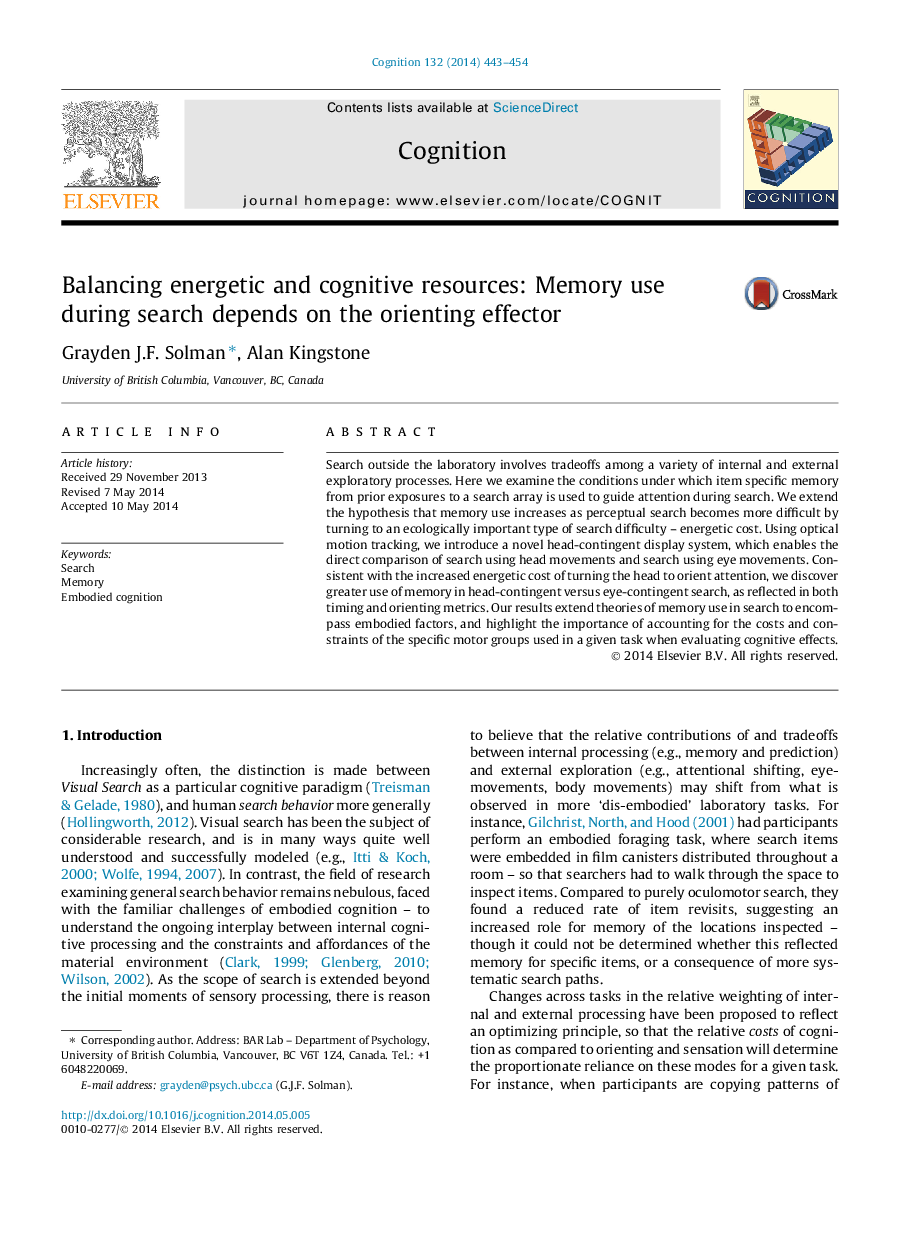| Article ID | Journal | Published Year | Pages | File Type |
|---|---|---|---|---|
| 10457535 | Cognition | 2014 | 12 Pages |
Abstract
Search outside the laboratory involves tradeoffs among a variety of internal and external exploratory processes. Here we examine the conditions under which item specific memory from prior exposures to a search array is used to guide attention during search. We extend the hypothesis that memory use increases as perceptual search becomes more difficult by turning to an ecologically important type of search difficulty - energetic cost. Using optical motion tracking, we introduce a novel head-contingent display system, which enables the direct comparison of search using head movements and search using eye movements. Consistent with the increased energetic cost of turning the head to orient attention, we discover greater use of memory in head-contingent versus eye-contingent search, as reflected in both timing and orienting metrics. Our results extend theories of memory use in search to encompass embodied factors, and highlight the importance of accounting for the costs and constraints of the specific motor groups used in a given task when evaluating cognitive effects.
Keywords
Related Topics
Life Sciences
Neuroscience
Cognitive Neuroscience
Authors
Grayden J.F. Solman, Alan Kingstone,
